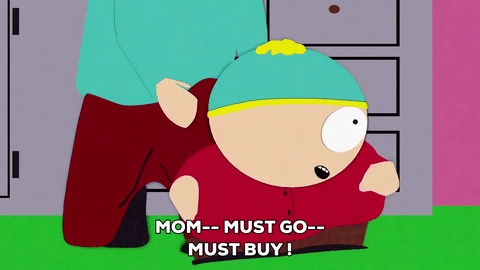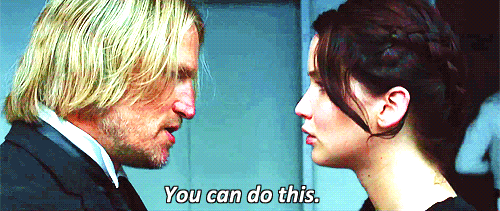If you’re paying off debt, chances are you’ve spent money you didn’t intend to or backpedalled on your payments.
Debt can feel so normal, you might not even be able to imagine a time where you will live without it.
This post lists four common mindsets people have that result in them sliding on their debt payments. See if any of these thoughts are familiar to you, and learn how you can readjust your thinking towards healthy progress.
1. “I have to buy this, the happiness outweighs the cost”
Who hasn’t indulged in some retail therapy when stressed?
You know that getting out of debt means choosing cheaper alternatives and buying less. But what happens when you see a beautiful coat that blows your budget out of the water? Naturally, your mind starts attempting to rationalize the purchase. You might say to yourself:
- “This will be the one nice thing I treat myself to all year.”
- “I’ve been so stressed lately, I deserve to treat myself to something nice.”
- “I’ve been doing so well on my debt payments, this won’t set me back too far.”
- “I’ll end up wearing this for years so the cost is justified.”
Sound familiar?

Look in your closet at your belongings and you’ll undoubtedly see items you purchased using those rationales. You may have never even used them, or possibly don’t even remember buying all of them.
An impulse purchase may spark a brief moment of pleasure, but the dread that results from falling behind on debt will be way worse.
When you’re sizing up that price tag, do some mental reframing:
- “I can buy a coat that will keep me just as warm for less than half the price.”
- “I already have a good coat in good condition, so I don’t need a new one this season.”
- “The feeling I will get from making my debt payment is far more rewarding then splurging on this.”
Instead of focusing on debt as a downer that requires retail therapy, focus on the long-term positivity of making your payments.
2. “What Difference Could My Daily $3 Cup of Coffee Possibly Make?”
Small purchases like a daily coffee are easy to rationalize, but once you start crunching the numbers it’s easy to see how these habits become costly.
Assuming you bought a $3 cup of coffee a day (including taxes), you’d be spending $1095 a year. And $3 is a conservative amount in the era of Starbucks. What about that impulse gum you bought? Chocolate or candy? Lottery tickets?

Add up all the little expenses and they’re not so little anymore. Try keeping a daily spending journal for a few weeks to really gain perspective on how much these items add up.
You don’t need to give up life’s pleasures, you just need to cut down where possible and account for these “extras” in your budget. For example:
- Buy coffee once a week, and otherwise brew it at home.
- Buy your treats in bulk, and eat smaller portions to make it last.
- Buy a lottery ticket only once a month.
Every single dollar is valuable. Every small victory counts.
3. “Pretty Much Everyone Has Debt, It’s Just The Way Things Are”
You’re not wrong that many adults have debt and struggle to pay it off. It can definitely feel like owing money is a normal state of affairs.
Although this is true for many Americans, debt doesn’t have to be your normal.
Too often we justify our decisions based on the actions of other people. If your friend went on a vacation of a lifetime but put themselves $5000 further in debt, you might feel alright doing the same.
Yes, you only live once. The FOMO is real. But vacations can wait, whereas interest payments are more than happy to drag you down today.
Instead of flying halfway around the world to dig yourself into a deeper hole, take a vacation closer to home. Don’t buy the brand new luxury model car when you can go budget.
When you’re debt free and contributing to your savings and retirement funds, there’s a good chance your jet-setting friend will be far more envious of you than you were of them.

4. “I’ll Never Get Out of Debt, So Why Bother Trying?”
You’re working on paying off your debt, and you’re on a roll. The world looks brighter and you feel like you can see the finish line.
Then unplanned expenses pop up -you can’t keep up with the bills. You get anxious, and then start backpedalling. When you’re feeling low, it’s easy to succumb to splurging, which can actually feed feelings of depression and hopelessness. It feels like you’ll never escape the looming shadow of your debt and start giving up.
Sound familiar?
No matter how well people budget and plan to get out of debt, the unexpected happens to everyone.
However, it’s easy to get back on track with a little help.

Debt counselors at RepairCreditQuick can help you when you’re just starting to pay off your debt or when the unexpected happens. With our help, plenty of our clients have crushed their debt, and we can do the same for you.
Contact us today and start your journey towards debt-free living.

